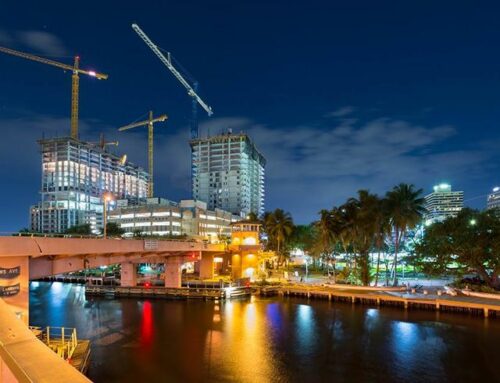In another installment of “You Can’t Fight City Hall and Win,” Florida’s First District Court of Appeals recently issued its opinion in Barnes v. The District Board of Trustees of St. Johns River State College, holding the District was not liable for property damage caused by an overflowing stormwater management system.
During the exceptionally heavy seasonal rainfall in 2009, a retention pond in a nearby subdivision overflowed into one of the District’s retention ponds, causing its retaining wall to breach, flooding the Barneses’ property. The Barneses sued the District for its failure to design, “adapt,” and “operate in a responsible way” its stormwater management system. The District moved for summary judgment, arguing it was immune from liability under section 373.443, Florida Statutes. The trial court ruled that section 373.443 completely immunized the District from the Barneses’ claims. The Barneses appealed. The District Court of Appeal affirmed.
The issue on appeal was the scope of immunity afforded to the District for stormwater management systems. Under section 373.443, the District is immune from liability for damages caused by a “partial or total failure of any stormwater management system” as a result of permit approvals; maintenance/operation orders; control/regulation of the systems; and emergency measures. The District may not be immune, however, for “negligent operational-level activities.” Florida Water Management District v. Nanz, 642 So.2d 1084 (Fla.1994).
Much of the Barneses’ claim against the District was couched in terms of a negligent failure to design or give adequate consideration to alternative designs that might have avoided the flooding. The Court easily found the District immune from these claims. However, the Barneses also alleged that the District was negligent in its operation of the stormwater management system. The Court viewed these allegations as falling short of establishing a viable negligence claim. The adequacy of the Barneses’ allegations, however, was not an issue on appeal. Indeed, the District did not contest the trial judge’s ruling that Barneses’ adequately alleged operational level negligence.
Instead of actually addressing the issue on appeal (i.e., whether section 373.443 extended immunity to the Barneses’ operational level negligence claims), the Court pigeonholed the Barneses’ allegations as “quite thin as a basis for denying summary judgment.” Although no one disputed that the Barneses alleged non-immune negligent operational-level activity, the Court nevertheless concluded the Barneses fell short of alleging a viable negligence claim.
Thus, the Court sidestepped the “thorny question” of whether the District was immune from liability for negligent operational-level activities by summarily deciding an issue not on appeal and confirming you can’t fight city hall and win. In the end, Florida homeowners living near retention ponds maintained by the state or district should beware; the state or district is very likely immune from liability for any damage caused by their improper operation of its retention ponds.



